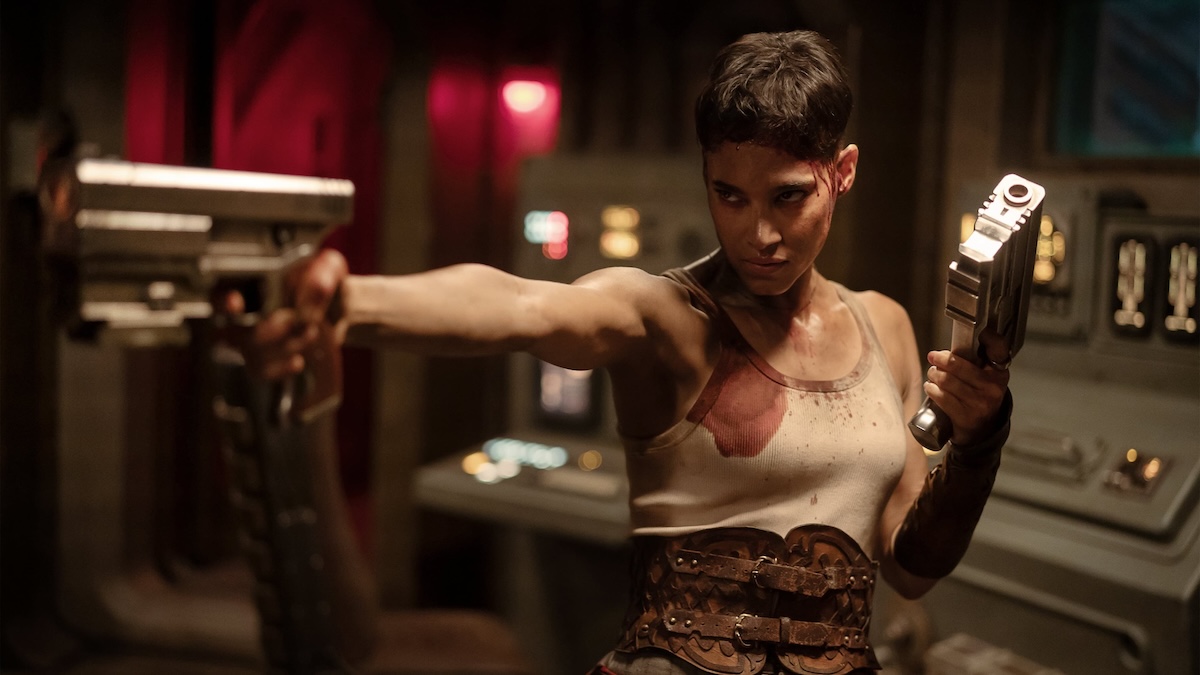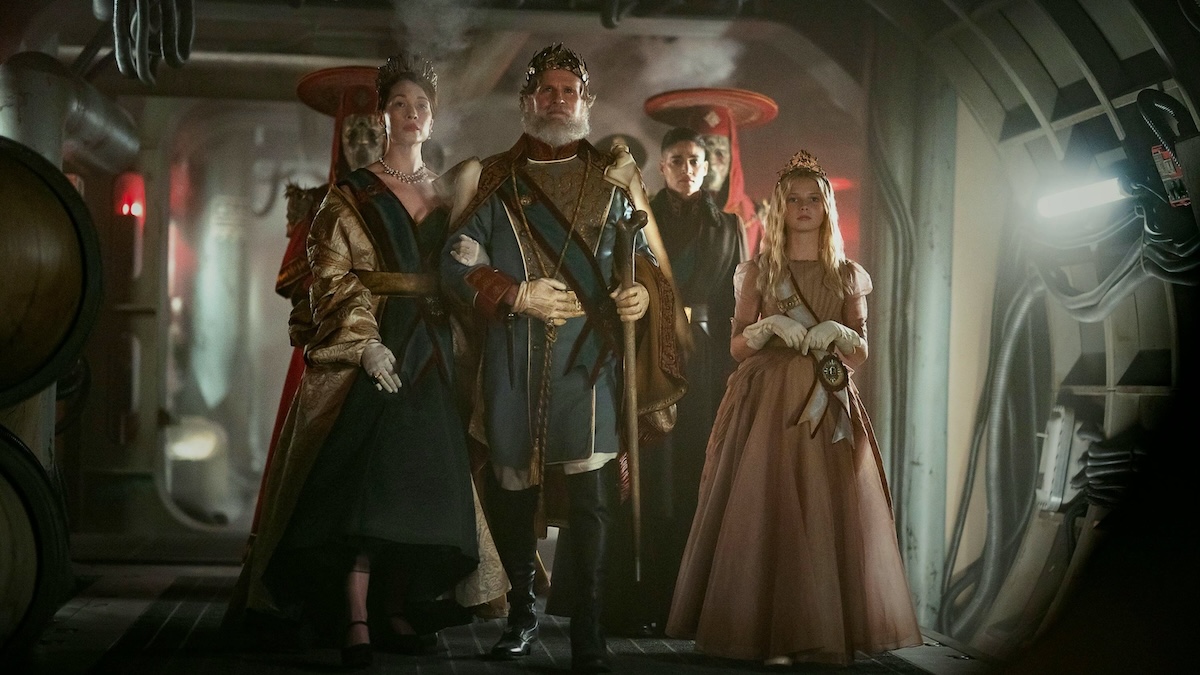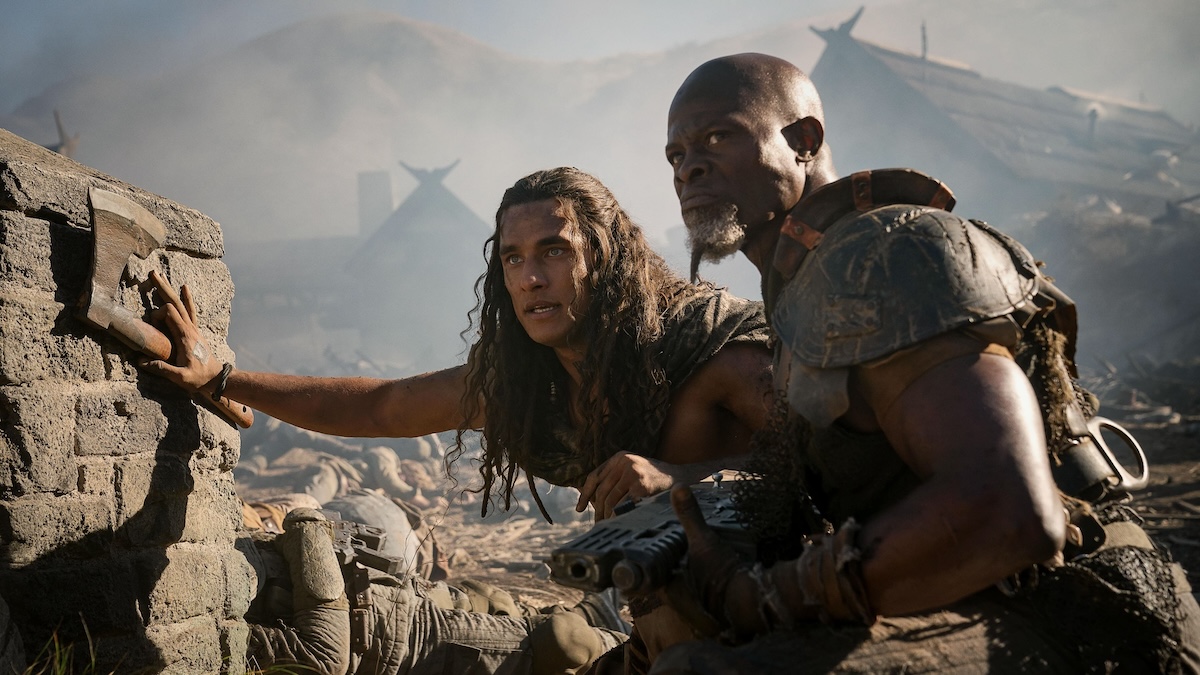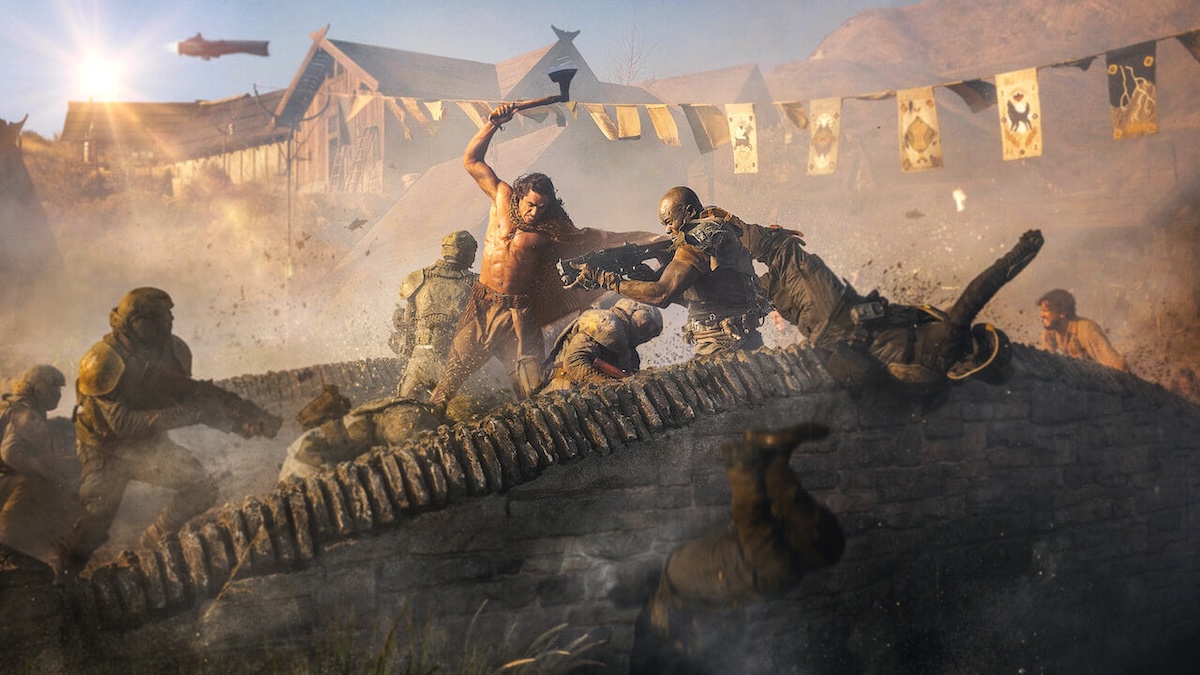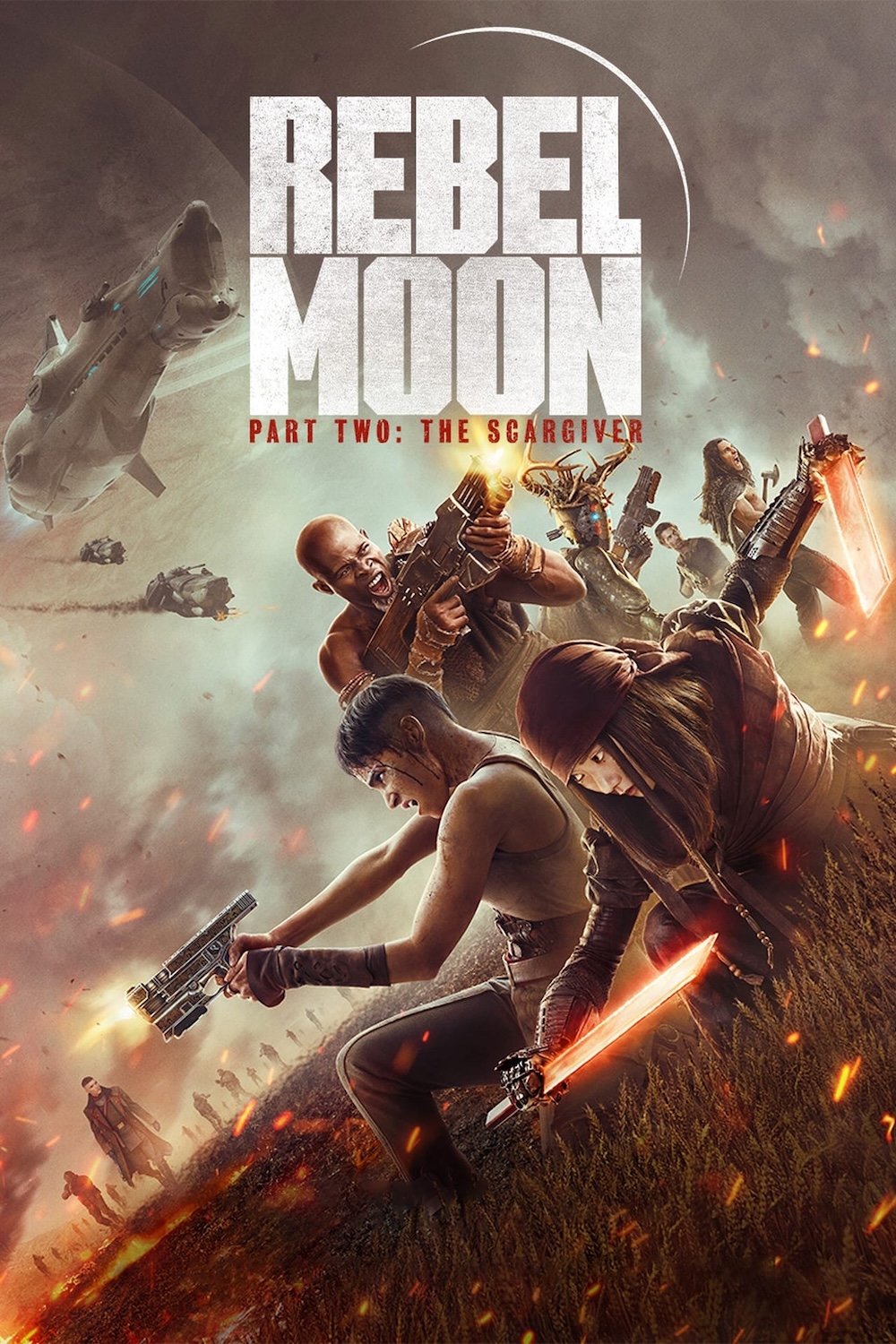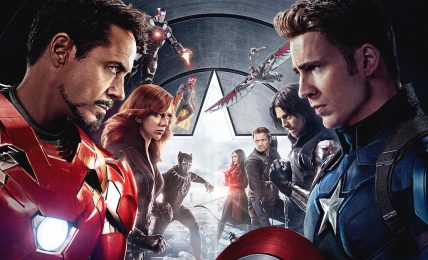REBEL MOON – PART TWO: THE SCARGIVER (2024)
Kora and surviving warriors prepare to defend Veldt, their new home, alongside its people against the Realm. The warriors face their pasts, revealing their motivations before the Realm's forces arrive to crush the growing rebellion.



